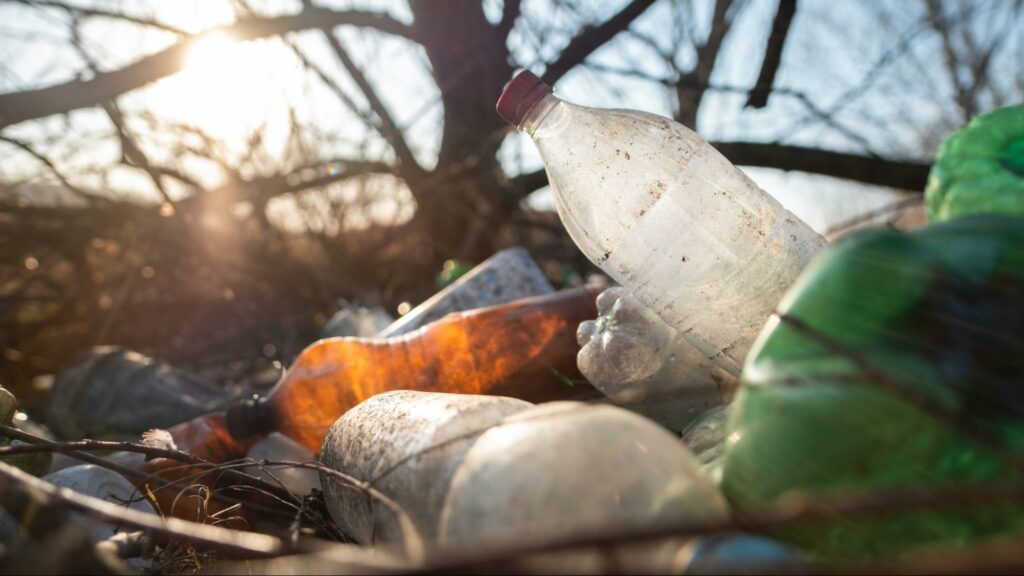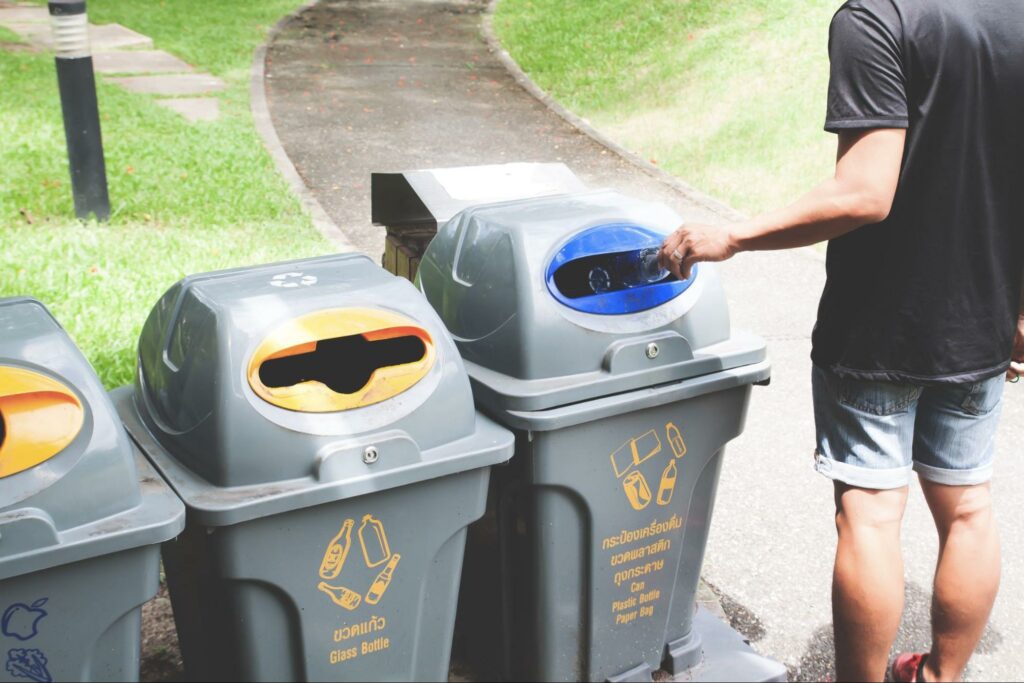In today’s world, environmental sustainability has become a pressing concern, and recycling plays a crucial role in mitigating the impact of waste on our planet. Oregon City, nestled in the heart of Oregon, embraces the importance of recycling and offers a range of resources to promote a greener and more sustainable community.
In this comprehensive guide, we will explore the recycling initiatives in Oregon City, including drop-off and e-cycle locations, recycling processes, composting, alternatives to hazardous household products, and tips for creating a healthier workplace. So, let’s dive into the world of Metro Recycle Oregon City and discover how we can all contribute to a cleaner and more sustainable future.
Recycling in Oregon City
Recycling plays a vital role in reducing waste and conserving natural resources. In Oregon City, the Metro Regional Government oversees the recycling efforts and provides convenient drop-off locations and e-cycle centers for various recyclable items.
Whether you have household items, electronics, or hazardous materials, there are dedicated facilities where you can responsibly dispose of them.
Here is a detailed table highlighting some of the key drop-off and e-cycle locations in Oregon City:
| Location | Address | Phone Number | Accepted Items | Official Website |
|---|---|---|---|---|
| Oregon City Transfer Station | 19600 S Molalla Ave, Oregon City, OR | (503) 234-3000 | Mixed recyclables, appliances, yard debris, tires | Official Website |
| Clackamas County Hazardous Waste | 3235 SE Kubitz Rd, Milwaukie, OR | (503) 234-3000 | Paint, cleaning supplies, batteries, fluorescent bulbs | Official Website |
| Best Buy | 9630 SE 82nd Ave, Happy Valley, OR | (503) 774-1248 | Electronics, appliances, ink cartridges | Official Website |
| Staples | 870 NE 25th Ave, Hillsboro, OR | (503) 615-8837 | Electronics, ink cartridges | Official Website |
When it comes to responsible waste management, Oregon City provides several convenient drop-off locations for recycling clean and dry bags and film packaging. These locations aim to promote recycling and reduce waste by accepting these specific materials. In this table, we will provide detailed information about the drop-off locations in Oregon City, including addresses, so residents can easily find the nearest facility to properly dispose of their bags and film packaging.
The following table presents comprehensive information about the drop-off locations in Oregon City that accept clean and dry bags and film packaging:
- Albertsons: 19007 S. Beavercreek Rd., Oregon City, OR 97045;
- Fred Meyer: 1839 Molalla Ave., Oregon City, OR 97045;
- Safeway: 13434 Colton Pl., Oregon City, OR 97045;
- Metro South Transfer Station:2001 Washington St., Oregon City, OR 97045.
These drop-off locations play a crucial role in promoting recycling and responsible waste management. By accepting clean and dry bags and film packaging, they provide a convenient and accessible avenue for residents to dispose of these specific materials properly.

Whether you shop at Albertsons, Fred Meyer, or Safeway, you can take advantage of their recycling facilities to recycle your clean and dry bags and film packaging. Additionally, the Metro South Transfer Station offers a comprehensive waste management solution, including the acceptance of these materials.
Remember, it’s important to ensure that the bags and film packaging you intend to recycle are clean and dry. Contamination can hinder the recycling process and impact the quality of recycled materials. By utilizing these drop-off locations, residents can actively contribute to reducing waste and promoting sustainability in Oregon City.
Recycling Processes and Initiatives
In Oregon, recycling processes and initiatives play a crucial role in promoting sustainability and minimizing environmental impact. From sorting and processing recyclables to composting organic waste, the state has implemented various strategies to reduce waste, conserve resources, and encourage responsible consumption.
Additionally, alternatives to hazardous household products and green building practices further contribute to a greener and more sustainable Oregon. By understanding and actively participating in these initiatives, individuals can make a positive difference and contribute to a healthier planet.
Recycling Processes
- Sorting: Once recyclables are collected, they undergo sorting to separate different materials such as paper, plastic, glass, and metal;
- Processing: The sorted materials are then processed, which may involve shredding, melting, or breaking them down into raw materials;
- Repurposing: The recycled materials are transformed into new products, reducing the need for virgin resources.
Composting
- Composting is the process of decomposing organic waste, such as food scraps and yard trimmings, into nutrient-rich soil;
- Composting helps divert organic waste from landfills, reduces greenhouse gas emissions, and enriches the soil for gardening and landscaping.
Alternatives to Hazardous Household Products
- By opting for environmentally-friendly alternatives, we can minimize our exposure to toxic chemicals and reduce the environmental impact;
- Look for eco-friendly cleaning products, use natural pest control methods, and choose non-toxic personal care items.
Thoughtful Consumption
- Mindful consumption involves making conscious choices about what we buy and the environmental impact of our purchases;
- Consider buying durable and long-lasting products, choose reusable items over single-use ones, and support local and sustainable businesses.
Green Building
- Green building practices focus on energy efficiency, water conservation, and sustainable materials;
- Incorporate energy-saving features, utilize renewable energy sources, and prioritize eco-friendly building materials in construction projects.
Through sorting, processing, and repurposing recyclables, valuable resources are given a new life, reducing the reliance on virgin materials. Composting diverts organic waste from landfills, enriching the soil and mitigating greenhouse gas emissions. Opting for environmentally-friendly alternatives to hazardous household products promotes healthier living environments and reduces pollution.

By practicing thoughtful consumption, individuals can make conscious choices that minimize waste and support sustainable businesses. Finally, incorporating green building practices ensures that structures are energy-efficient, conserve water, and use eco-friendly materials, contributing to a greener and more sustainable future for Oregon.
Accepted Items for Recycling in Oregon
Oregon City has a comprehensive list of items that can be recycled. Here are some commonly accepted items for recycling in Oregon:
| Item | Recyclable Materials |
|---|---|
| Paper | Newspapers, magazines, cardboard, office paper |
| Plastic | Bottles, containers, plastic bags |
| Glass | Bottles, jars |
| Metal | Aluminum cans, steel cans, tin cans |
| Electronics | Computers, laptops, cell phones, TVs |
| Batteries | Household batteries, rechargeable batteries |
Creating a Healthier Workplace
Promoting a healthier workplace not only benefits employees but also contributes to a more sustainable environment. Here are some tips for creating a healthier and eco-friendly workplace:
- Encourage recycling by providing clearly labeled recycling bins for paper, plastic, and other recyclables;
- Reduce paper waste by implementing digital document systems and encouraging electronic communication;
- Use energy-efficient lighting, appliances, and equipment to minimize energy consumption;
- Promote sustainable transportation options such as carpooling, biking, or public transit for commuting;
- Implement green cleaning practices by using eco-friendly cleaning products and reducing chemical usage.
M Seed Thrift Store
M Seed Thrift Store. a locally owned second-hand shop located in Oregon City, Oregon. is located at 124A Molalla Ave., Oregon City, OR 97045. It was founded in 2011 and can be reached at the phone number 503-318-6281. The thrift store’s mission is to support M Seed Outreach in assisting individuals who are struggling with addiction. They achieve this by accepting a diverse range of donated items and generating local proceeds.
The store accepts various donations, including glass kitchenware, mirrors, collectibles, antiques, retro items, hipster clothing, designer clothing, and furniture. By accepting these items, M Seed Thrift Store not only provides a sustainable and affordable shopping experience for the community but also helps support the programs and initiatives of M Seed Outreach.
Through their dedication and collaboration with other organizations, M Seed Outreach works to meet individuals who suffer from addiction where they are, offering them hope and a way off the streets. They facilitate access to 12-month residential programs that remove individuals from triggers and enablers, providing them with a fresh start. Participants in these programs receive support in the form of job skills training, life skills development, and counseling. The ultimate goal is to empower individuals to transform their lives and, in turn, share the love and hope they have received with others, making positive change possible for more people.
By supporting M Seed Thrift Store, community members actively contribute to this mission. The proceeds generated from the thrift store’s sales stay local, ensuring that the impact is felt within the Oregon City community. Through their donations and purchases, individuals can be part of the transformative journey of those struggling with addiction, helping them find a path to recovery, stability, and a brighter future.
Conclusion
In Oregon City, the commitment to recycling and sustainability is evident through the range of drop-off and e-cycle locations, recycling processes, composting initiatives, alternatives to hazardous household products, and emphasis on thoughtful consumption and green building practices.
By actively participating in these initiatives, individuals and businesses in Oregon City can make a significant impact on reducing waste, conserving resources, and creating a greener future. Let’s embrace the Metro Recycle Oregon City and work together to build a more sustainable community for generations to come.